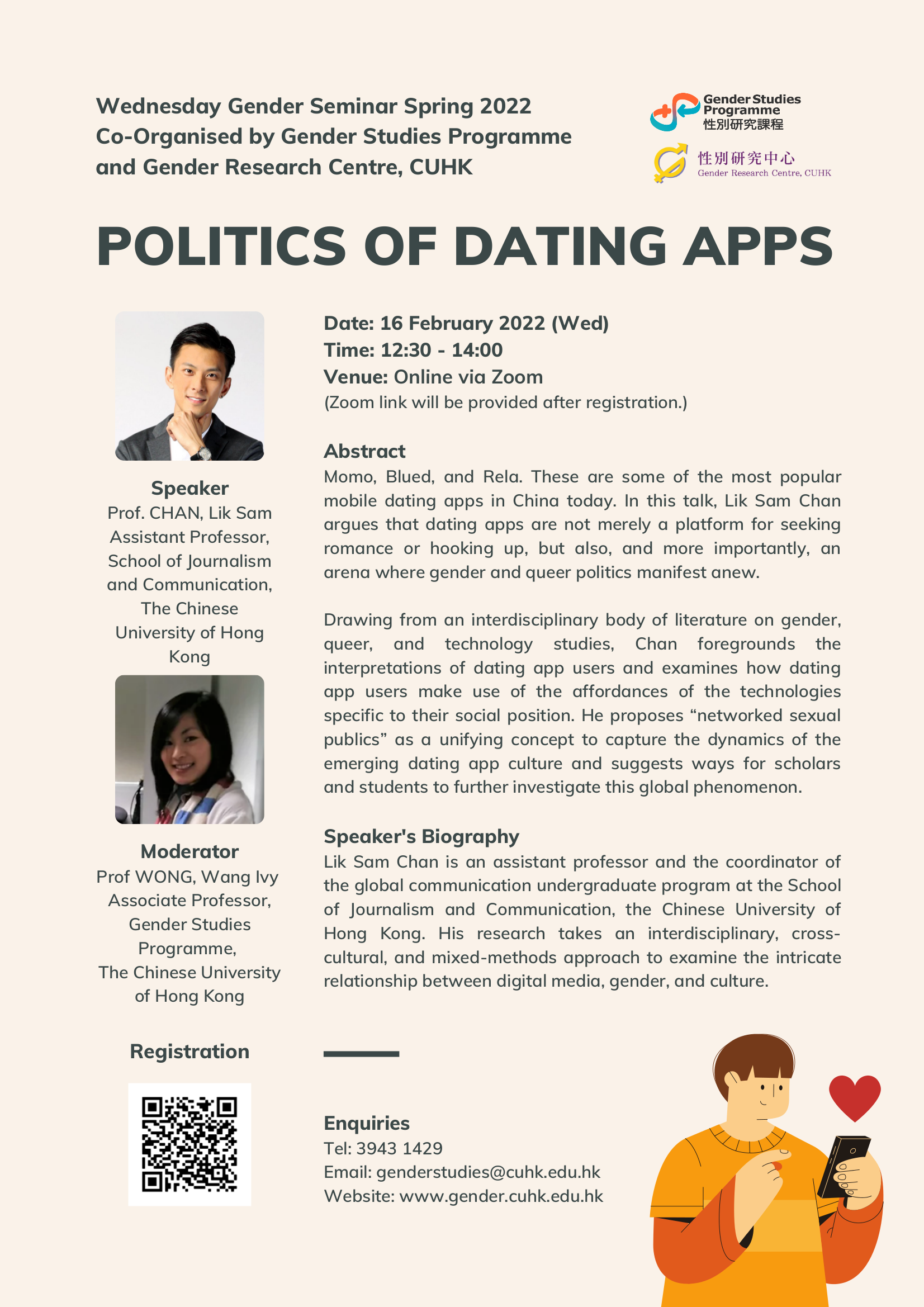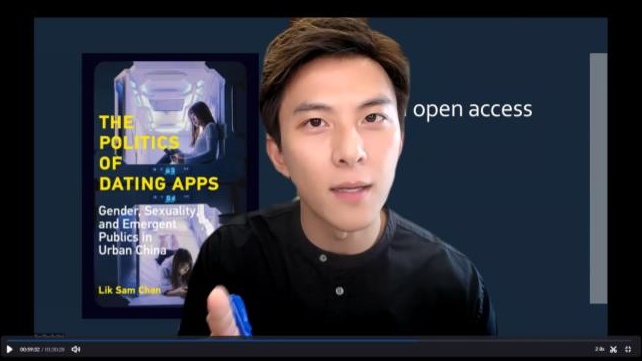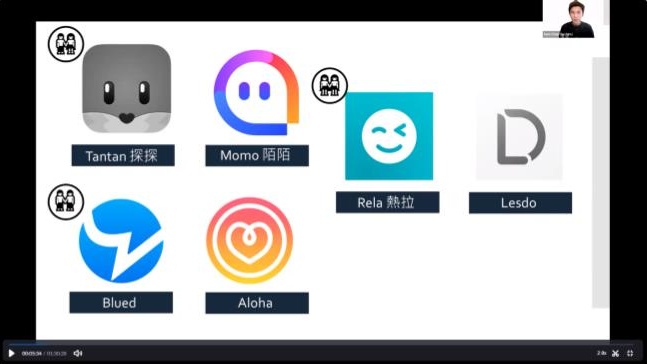CHAN Lik Sam, assistant professor at the School of Journalism and Communication of the Chinese University of Hong Kong, presented his research on “Politics of Dating Apps” via Zoom online lecture at the Gender Seminar on Wednesday, February 16th.
Using in-depth interviews and critical methods, Prof. CHAN Lik Sam had deep-going conversations with friends around him who use dating apps, understood their motivations for using these apps, analyzed their experiences and feelings in using the apps, and focused on the explanations from users of dating apps. Finally, Prof. CHAN established the connection between dating apps and individual politics. He sees dating apps not just as a platform for romance or hooking up, but more importantly, as an arena to reembody gender and queer politics.
At the same time, Prof. CHAN draws on interdisciplinary literature on gender, homosexuality, and technology research to examine how dating app users take advantage of the technological capabilities unique to their social status. He proposed the “Networked Sexual Publics” as a unifying concept to capture the dynamics of emerging dating app culture, and suggested that scholars and students use thinking of intersectionality to further study this global phenomenon in the future.
He pointed out that we need to call for a fight for social rights. Spaces outside of the heterosexual community have already received a lot of attention through dating apps, and if online sex topics are latent, then building our identities through dating apps could lead to a more gender-equal and homosexuality-friendly world. Using apps to find “sex” for women, for example, is actually a way to help them learn about themselves.
Looking ahead to future research, Prof. CHAN believes that if we want to pay attention to people’s different interpretations of dating apps or behaviors, we need to take an intersectional approach. In fact, every sexual public on the Internet has at least two identities — male and female. We also need to consider factors such as age, urban and rural areas. These undiscussed intersections may affect users’ use of the application, which requires further research and discussion.
Written by: LUO Xilu, GAO Yuting, XIA Mohan





A
A
A
Contact Us